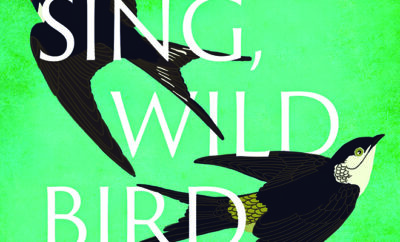
Vinegar Girl by Anne Tyler
“It’s such a crazy story,” Anne Tyler told the Washington Post. “People behave so inexplicably that you just know there’s another side to it. Someone’s exaggerating; somebody’s putting his own spin on things. Let’s just figure out what really happened.” This is her 21st novel.
In Vinegar Girl, Anne Tyler takes on the challenge of updating a well-known Shakespearean comedy for a modern audience. It’s a formidable undertaking, since Shakespeare’s The Taming of the Shrew relies on theatrical devices such as assumed identities and espouses archaic notions about the roles of men and women. Tyler’s solution is to create a couple who would be more at home in a Jane Austen novel than in an Elizabethan play.
As with many of her novels, Tyler sets her story in Baltimore, Maryland. Her heroine is Kate Battista, who at 29 is still not sure what she wants to do with her life. In the meantime, she manages the house for her widowed father and ditzy teenage sister, Bunny. She’s not very enthusiastic about her domestic duties and limits cooking to a big weekly pot of beans, vegetables and stew meat that the family calls “meat mash,” which she serves as a leftover each night for dinner. She’s equally unenthusiastic about her job as a teacher’s assistant at a preschool, where she’s frequently reprimanded for being too outspoken with parents. What she’s really interested in is plants, but her career as a botanist was cut short when she was expelled from college after arguing with a professor about photosynthesis and calling him an idiot.
Kate is a science nerd like her father, who has worked as a research scientist for decades on a project that has little support from his peers at Johns Hopkins. She’s not unattractive, with her best feature being long black hair that she has let grow to her waist because she can’t be bothered to cut it, but her prickly personality scares off friends and boyfriends. “It wasn’t that Kate had never had a boyfriend,” writes Tyler. “After she graduated from high school, where the boys had seemed a little afraid of her, she had a lot of boyfriends. Or a lot of first dates, at least.” She’s frequently compared unfavorably with her younger sister, who inherited their mother’s golden curls and winning personality. Unlike Shakespeare’s Kate, who is extremely unpleasant, Tyler’s Kate is an intelligent young woman who isn’t afraid to speak her mind.
Tyler cleverly introduces a proposed arranged marriage when Dr. Battista’s research partner is faced with the threat of deportation. Pyotr Shcherbakov is a brilliant Russian scientist in the U.S. on a limited visa that’s about to expire and Dr. Battista is so desperate to help him stay that he suggests his older daughter agree to a marriage “in name only.” Kate is outraged at the suggestion. Her pride is hurt since it seems her father thinks she needs someone else to find her a husband. She hasn’t even decided if she wants to be married, but at the same time she feels that life is passing her by and that her longtime crush on fellow preschool worker Adam is going nowhere.
Kate knows how important her father’s research is to him, so she agrees to the marriage as long as it’s understood that she and Pyotr will separate as soon as he receives a green card. Pyotr agrees with Kate when she says, “Not a step of this plan involves anybody being crazy about anybody.” But he doesn’t really intend to go along with her plan and begins to use reverse psychology, as does Petruchio in the original, to convince Kate that marrying him will improve her life. Then romance kicks in and things begin to get interesting.
After Kate agrees to go along with the marriage plot and Pyotr begins his secret campaign to win her heart, she begins to see him in a new light. Besides being a brilliant scientist, he is full of funny comments and ideas. Instead of alienating modern readers by having Pyotr force Kate into submission, Tyler has the struggle take place in Kate’s heart and mind. As much as she resents the lengths her father and Pyotr have taken to convince her that the marriage is a good idea, she realizes that her life is stuck and that she doesn’t seem to be able to unstick it on her own. It’s not a question of being tamed by her future husband as it is deciding to share her life with someone who looks at the world in the same way she does.
The Hogarth Shakespeare project marks the 400th anniversary of his death. Additional titles include Jeanette Winterson’s The Gap of Time, Howard Jacob’s Shylock is My Name and Margaret Atwood’s Hagwood. Learn more about this special series at hogarthshakespeare.com. ■







